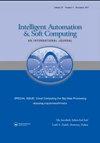孤立太阳能光伏发电系统的一种新型混合MPPT控制策略
IF 2
4区 计算机科学
Q2 Computer Science
引用次数: 1
摘要
本文提出了一种适用于独立/隔离太阳能光伏应用的新型混合控制器,以提高太阳能光伏发电系统的效率。该控制器利用自适应神经模糊推理系统(ANFIS)和摄动与观测(P&O)控制技术的优点,在太阳辐照和温度等环境条件的动态变化下进行快速恢复。与模糊逻辑和人工神经网络方法相比,ANFIS策略本身具有优点。相反,P&O在实现上很简单。因此,本文对所提出的控制器和常规P&O控制策略的快速恢复进行了案例研究。SPV模块与带有DC-DC升压变换器接口的负载电阻相关联。对系统施加静态、动态、缓慢但稳定的正、负斜率增长模式,观察系统的响应。所提出的方法具有P&O和ANFIS的优点,可以在快速变化的条件下获得更好的效果。比较了现有各种MPPT算法的性能。结果表明,所提出的混合控制器在动态情况下比传统的P&O控制器收敛速度快,并且在静态和逐渐变化的环境条件下服从。本文章由计算机程序翻译,如有差异,请以英文原文为准。
A Novel Hybrid MPPT Control Strategy for Isolated Solar PV Power System
The main aspiration of this paper is to improve the efficiency of Solar Photovoltaic (SPV) power system with a new Hybrid controller for standalone/ isolated Solar PV applications is proposed. This controller uses the merits of both Adapted Neuro-Fuzzy Inference System (ANFIS) and Perturbation & Observation (P&O) control techniques to concede rapid recovery at dynamic change of environment conditions such as solar irradiation and temperature. The ANFIS strategy itself has the merits over Fuzzy Logic and ANN methods. Conversely, P&O has its simplicity in implementation. Hence a case study for rapid recovery with the proposed controller and conventional P&O control strategy is carried out in this work. A SPV Module is associated to a load resistance with an interface of DC-DC step-up converter. A pattern of solar irradiation comprises of different static, dynamic, slow but sure increase with positive and negative slope are applied to the system and the response is observed. The proposed method is having the benefits of both P&O and ANFIS respectively to get better results on rapid change over conditions. The performance comparison of various MPPT algorithm of existing methods. The outcome demonstrates that the proposed hybrid-controller converges so rapid than the conventional P&O controller at dynamic situations and obeys at static and gradually varying environment conditions.
求助全文
通过发布文献求助,成功后即可免费获取论文全文。
去求助
来源期刊

Intelligent Automation and Soft Computing
工程技术-计算机:人工智能
CiteScore
3.50
自引率
10.00%
发文量
429
审稿时长
10.8 months
期刊介绍:
An International Journal seeks to provide a common forum for the dissemination of accurate results about the world of intelligent automation, artificial intelligence, computer science, control, intelligent data science, modeling and systems engineering. It is intended that the articles published in the journal will encompass both the short and the long term effects of soft computing and other related fields such as robotics, control, computer, vision, speech recognition, pattern recognition, data mining, big data, data analytics, machine intelligence, cyber security and deep learning. It further hopes it will address the existing and emerging relationships between automation, systems engineering, system of systems engineering and soft computing. The journal will publish original and survey papers on artificial intelligence, intelligent automation and computer engineering with an emphasis on current and potential applications of soft computing. It will have a broad interest in all engineering disciplines, computer science, and related technological fields such as medicine, biology operations research, technology management, agriculture and information technology.
 求助内容:
求助内容: 应助结果提醒方式:
应助结果提醒方式:


